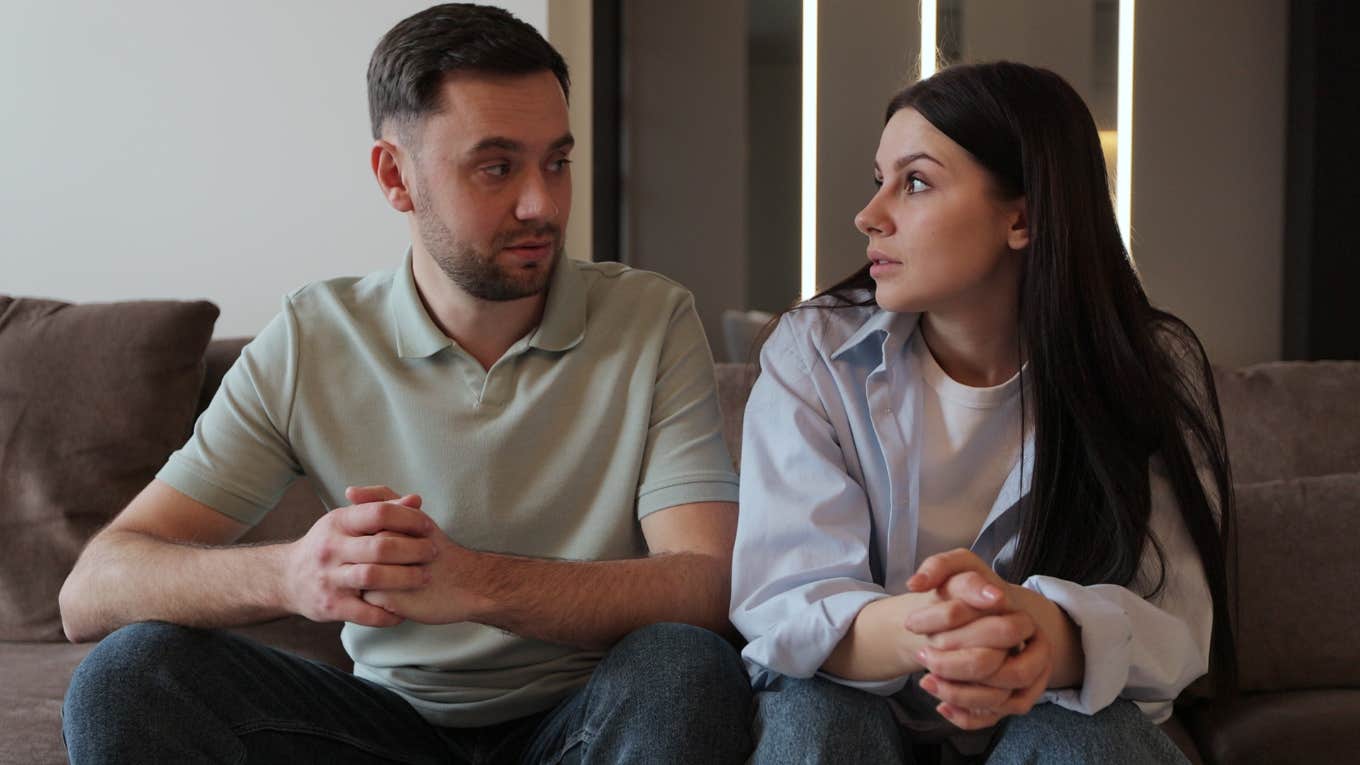First-Time Homebuyer Turns Down Dream Home After Learning Another Person Put A Lower Offer In First — ‘Morally We Can’t Do It’
Sometimes doing the right thing isn't easy.
 AlpakaVideo | Shutterstock
AlpakaVideo | Shutterstock Buying a house, especially bidding on one, can be stressful. The hardest part is making an offer without knowing if it will be accepted. Someone else might offer more money, or they might have submitted their bid first and already been accepted. In some states, even after a seller accepts an offer, they still have a short window to back out if a higher offer comes along.
That is exactly what happened to a couple on Reddit. The wife explained in her post that they made an offer on their dream home, which they needed to move into quickly, and their offer was accepted. But they later backed out after learning the seller had already accepted a lower bid from another buyer first.
The first-time homebuyers turned down their dream home because their morals wouldn't allow them to take the home from another buyer.
"We are very upset," the wife wrote. "We found a house on Zillow that was within our price range and in the area we wanted to live." She explained that they put in an offer, but it was not accepted because the seller chose another buyer first. Their realtor then advised them to place a higher backup offer. "Our realtor just called tonight and said the sellers want to sell us the house," she added.
 La Famiglia | Shutterstock
La Famiglia | Shutterstock
So it was a done deal, right? Apparently not. The family was later told that the first buyer’s financing had not fallen through. Instead, the sellers were planning to back out of the first offer because they wanted the Reddit couple's higher offer. According to the realtor, Illinois law gives sellers a five-day window to back out of a contract if they receive a better offer. By that point, however, the first buyer had already paid earnest money, which is a deposit to show they are serious about buying, and had even paid for an inspection.
This broke the deal for them. "We told her, no, we can't do that to the buyer who paid earnest money, and for an inspection, and is looking forward to the house," the wife said. She added that although they are desperate to find a place, they do not want to compromise their morals. "Now I'm crying because I wanted that house," she admitted, "but ethically I can't do it." Her husband felt the same way, saying he would not feel right knowing he had taken the home away from another buyer.
The couple were noble in their choice, but their circumstances are not unique when it comes to the homebuying process.
At first glance, it might seem like the couple made a selfless, noble choice by stepping aside. But in reality, they probably should have taken the house. Even from an ethical standpoint, there is a strong case to be made. Let’s break down why.
First, there was no need to worry about the earnest money. The first buyer would have gotten it back since they were not the ones backing out of the deal. According to Zillow, "As long as you stick to the terms and conditions of your purchase contract, your earnest money deposit should be refunded in full.
Next, the first buyer would most likely have gotten their inspection money back if they had even paid for it in the first place. The wife wrote that their agent claimed the inspection was done immediately, which commenters found odd since, according to Danberry Realtors, buyers typically have seven to ten days to schedule and complete one. If the inspection had not yet been paid for, the family should have taken the house. If it had been paid, the buyer likely would have been refunded. And in the unlikely case they were not, the family could have covered the cost themselves, given how much they needed the home and still wanted to act ethically.
The last two points are simple: who is the buyer, and does the seller deserve more money? The original buyer could have been an investor adding another property to their 20-house portfolio, which would not be surprising since about 44 million housing units in the U.S. are currently rentals. On the other hand, the seller might have been counting on every extra dollar. Maybe they were nearing retirement and needed the higher offer to help secure their future.
The conclusion is that buying a house is a financial transaction, not a competition to see who can be the most virtuous. The family may have had good intentions, but their reasoning was misguided. The first buyer would have gotten their earnest and inspection money back, and the seller also had the right to accept the best deal. In the end, all we can do is hope the family finds their dream home soon.
Matt Machado is a writer studying journalism at the University of Central Florida. He covers relationships, psychology, celebrities, pop culture, and human interest topics.

